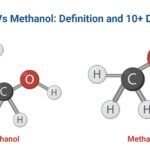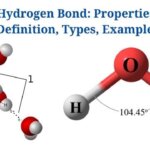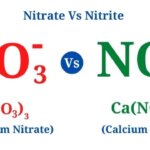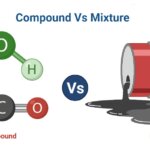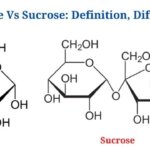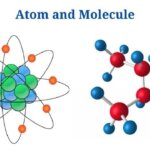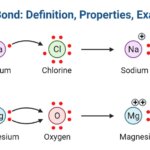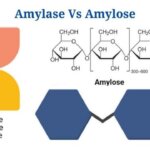Definition of Hard Water
Hard water is water with a high mineral content that is created by water percolating through mineral formations such as limestone.
- Chemical ions such as bicarbonates, carbonates, as well as calcium as well as magnesium sulfates can be found in hard water.
- Iron oxides or iron carbonates may be present in some hard water, resulting in a reddish-brown appearance of the deposits.
- Hard water is healthier for your health since it has some health benefits, but it can cause issues in industrial settings since it requires filters to remove excess pollutants.
- Hard water can be identified at home by the absence of froth when soap is stirred in water, or by the growth of scales on kettles as well as water heaters.
- Hard water is created by rainwater passing through beds of rocks with a low concentration of multivalent ions. As a result, the degree of hardness varies depending on the complexity of a location’s geology.
- There are two forms of hardness: permanent hardness as well as transient hardness.
- Permanent hardness is caused by multivalent cations (usually with charge +2) such as calcium as well as magnesium, as well as anions such as sulfate as well as chloride.
- Temporary hardness is induced by the presence of dissolved bicarbonates as well as carbonates, as well as it can be mitigated through a variety of methods.
- Since sulfates as well as chlorides do not precipitate out with increasing temperature, permanent hardness is difficult to remove with simple procedures like boiling.
- Hard water can cause issues such as clogged pipes, deposits on kitchenware, as well as galvanic corrosion.
Definition of Soft Water
Water that is free of dissolved calcium as well as magnesium salts as well as so has a low mineral concentration is referred to as soft water.
- Sodium-based monovalent cations are found in soft water, whereas multivalent cations are found in hard water.
- Soft water is typically created by using water softeners or other substances to reduce the mineral content in hard water.
- Soft water is necessary for cleaning as well as washing since it provides enough soap lather.
- Water softening has been used for a variety of sources since the mineral concentration can be quite high for common use.
- It is also said to be better for extending the life of plumbing by decreasing the build-up of scale in pipes.
- Lime as well as ion-exchange resin are common softening agents used in the process, that exchange minerals to generate soft water.
- Soft water has a salty taste due to the sodium ions present in the salts.
- If soft water is exposed to mineral rocks for an extended period of time, it will eventually change into hard water.
Key Differences between Hard water and Soft water
(Hard water Vs Soft water)
[ninja_tables id=”5643″]
Hard Water Example
Groundwater
- Groundwater is water that exists under the Earth’s surface as well as is commonly found in soil pore spaces as well as rock fissures.
- Depending on the depth of soil pore spaces as well as rock cracks, water under the surface remains in the form of a water table.
- Surface water, that seeps through the openings from springs as well as other sources, is the source of groundwater.
- Water might be taken from agricultural lands, trash disposal sites, as well as industrial operations.
- Groundwater is used for drinking since it is frequently cheaper as well as less polluted than surface water. For municipal water sources, many countries around the world rely exclusively on groundwater.
- Groundwater is hard as well as contains different types of salts since it comes into close contact with rocks when traveling through as well as laying on them.
- Depending on the location as well as geology of the area, groundwater can have both permanent as well as transitory hardness.
Soft Water Example
Rainwater
- Rainwater is water that has condensed from air vapor as well as is falling in the form of droplets.
- Rainwater is an important aspect of the Earth’s water cycle, accounting for the majority of the water on the planet’s surface.
- It’s a mixed electrolyte with a range of main as well as minor ion concentrations. Rainwater varies in composition from location to place as well as season to season.
- Sodium as well as potassium, as well as their chlorides, are the primary ions found in rainfall, while nitrates, iron, as well as silica are minor ions.
- Rainwater is soft since it has a low mineral concentration. As a result, it is regarded as safe to eat.
- Rainwater, on the other hand, is effective for washing as well as cleaning since it provides enough lather when combined with soap.
Hard water Vs Soft water Citations
- Sengupta, Pallav. “Potential health impacts of hard water.” International journal of preventive medicine vol. 4,8 (2013): 866-75.
- Leurs, Lina J et al. “Relationship between tap water hardness, magnesium, and calcium concentration and mortality due to ischemic heart disease or stroke in The Netherlands.” Environmental health perspectives vol. 118,3 (2010): 414-20. doi:10.1289/ehp.0900782
- https://pediaa.com/difference-between-hard-water-and-soft-water/
- https://blog.oureducation.in/softening-of-water-by-various-methods/
- https://www.bestrowaterpurifier.in/blog/what-is-hard-water-pros-cons/
- https://pubs.usgs.gov/wsp/1535g/report.pdf
- http://attemptnwin.com/answers/rain-water-consists/
Related Posts
- Dissecting Microscope (Stereo Microscope) Definition, Principle, Uses, Parts
- Saturated vs Unsaturated Hydrocarbons: Definition, Differences, Examples
- Ethanol Vs Methanol: Definition and 10+ Differences
- Hydrogen Bond: Properties, Definition, Types, Examples
- Nitrate Vs Nitrite: Definition, Differences, Examples
- Aromatic Compounds vs Aliphatic Compounds: Definition, Differences, Examples
- Compound Vs Mixture: Definition, Differences, Examples
- Elements Vs Compounds: Definition, Differences, Examples
- Molecules Vs Compounds: Definition, Differences, Examples
- Hard water Vs Soft water: Definition, Differences, Examples
- Glucose Vs Sucrose: Definition and Key Differences
- 13+ Difference Between Atom and Molecule with Examples
- How to Balance Chemical Equation: Methods, Steps, Examples
- Ionic Bond: Definition, Properties, Examples
- Amylase Vs Amylose: Definition, Differences, Example
